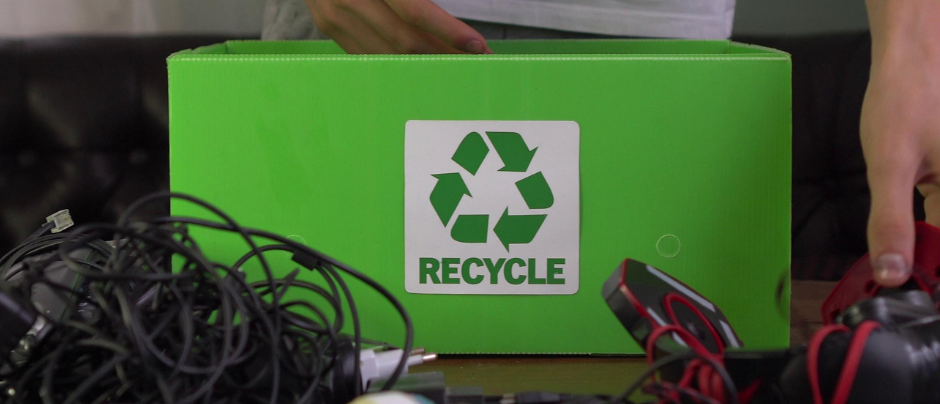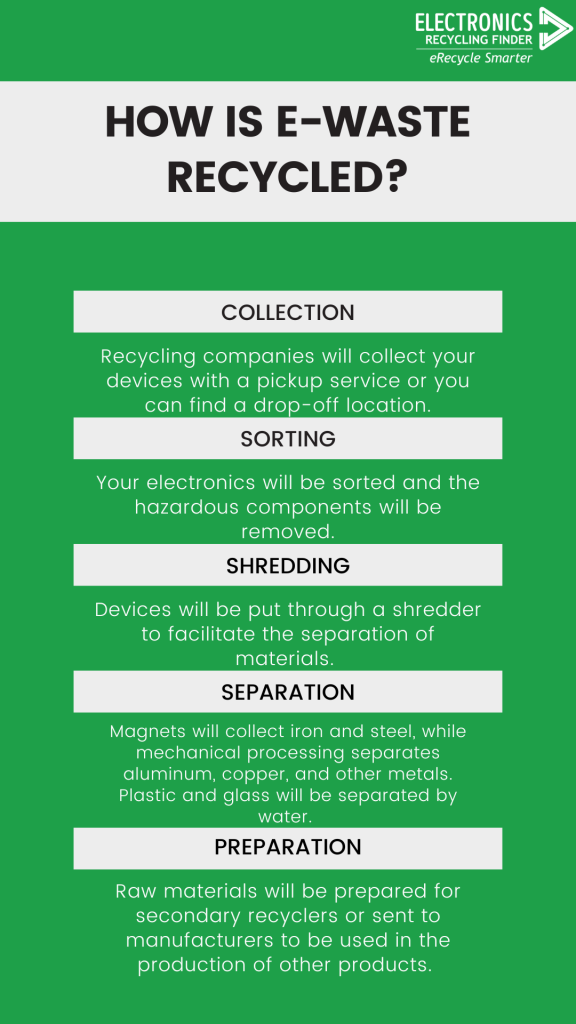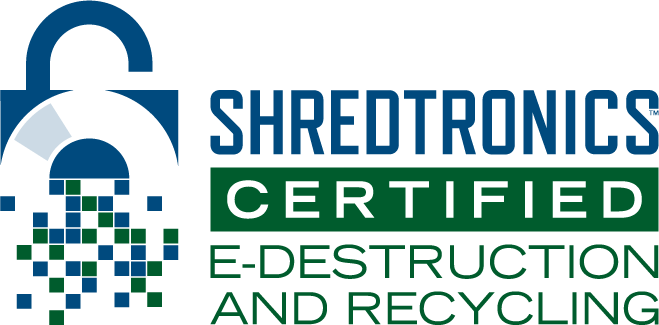
Electronics play a huge role in our daily lives. As soon as you wake up, it is likely that you check your phone or peek at your smartwatch before you have even get out of bed. As our dependence on electronics grows, so does the waste stream left in its wake.
Electronic waste (e-waste) is the fastest-growing waste stream in the world. The demand for devices continues to increase as the lifespan of each device shortens, sending millions of pounds of toxic waste into landfills. Chemicals from e-waste seep into the ground and pollute the air, causing dangerous health and environmental consequences.
E-waste recycling protects humans and wildlife from the damage of e-waste. It conserves natural resources, saves energy, and prevents the illegal exportation of e-waste to third-world countries. Recycling recovers valuable metals that we can reuse while safely disposing of toxic materials.
What is E-waste?
E-waste is an all-encompassing term to describe discarded electrical equipment that has come to the end of its useful life. Typical types of e-waste include cell phones, TVs, computers, laptops, and tablets. It can also include household appliances, medical devices, toys, tools, and more.
The good news is nearly all e-waste is recyclable. You can refurbish and resell working devices; you can break down and separate others by material. Plastic, glass, and precious metals are all salvageable and reusable. According to the EPA, for every 1 million cell phones recycled, 35 thousand pounds of copper, 772 pounds of silver, 75 pounds of gold, and 33 pounds of palladium can be recovered.
The E-waste Recycling Process

The recycling process is complex because it varies by device, materials, and technologies. Electronics contain harmful toxins that only professionals should handle. Here is an overview of how the process works:
- Collection: Recycling companies will collect your devices with a secure pick-up service or you can drop off your devices at a local recycling center.
- Sorting: Your electronics will be manually sorted and hazardous components will be removed.
- Shredding: Devices will be put through a shredder to facilitate the separation of materials.
- Separation: Magnets will collect iron and steel, while mechanical processing separates aluminum, copper, and other metals. Water will separate the plastic and glass.
- Preparation: Raw materials will be prepared for secondary recyclers or sent to manufacturers to be used in the production of other products.
The Benefits of E-Waste Recycling
Safe e-waste recycling has significant benefits for the environment, human health, and the global economy. Here are some of the benefits that come from using a certified electronics recycling company to safely dispose of your devices:
Reduced Need for Mining
Electronics manufacturing requires minerals and metals to create circuit boards and other components. Recycling recovers these materials for reuse, reducing the need for mining. Reduced mining preserves land and saves energy.
Eco-friendly Source of Manufacturing Materials
Manufacturers need metallic and plastic resources to create new products. E-waste recycling creates an eco-friendly source of materials to build new devices.
Less Dumping in Landfills
Over time, landfills become a toxic bed of chemicals that leach into the ground, contaminating nearby soil, water, and air. E-waste recycling prevents electronics from ending up in landfills.
Cleaner Water
Toxic chemicals from e-waste leach into bodies of water, killing aquatic life and poisoning our drinking water. E-waste recycling keeps our water clean and preserves freshwater ecosystems.
Cleaner Air & Soil
Improper incineration of e-waste releases toxic gas emissions creating serious health hazards. Chemicals leaching into the ground poisons the soil and affects plant growth. Recycling protects the integrity of the soil, promotes agriculture, and leads to cleaner air.
Reduced Health Hazards
E-waste has been linked to behavioral problems, neurological issues, respiratory damage, impaired thyroid function, and an increased risk of cancer and cardiovascular disease. E-waste recycling reduces health concerns and prevents exporting e-waste to countries that lack regulations that protect human health.
Partner with ShredTronics to Safely Recycle Your E-waste Today
ShredTronics will connect you with certified recyclers in your area to safely dispose of your old devices. We specialize in recycling solutions that are convenient and reliable. Contact us by calling (844) 648-4908 to begin your recycling project today. Within minutes, we will send you free quotes from local recycling providers.











